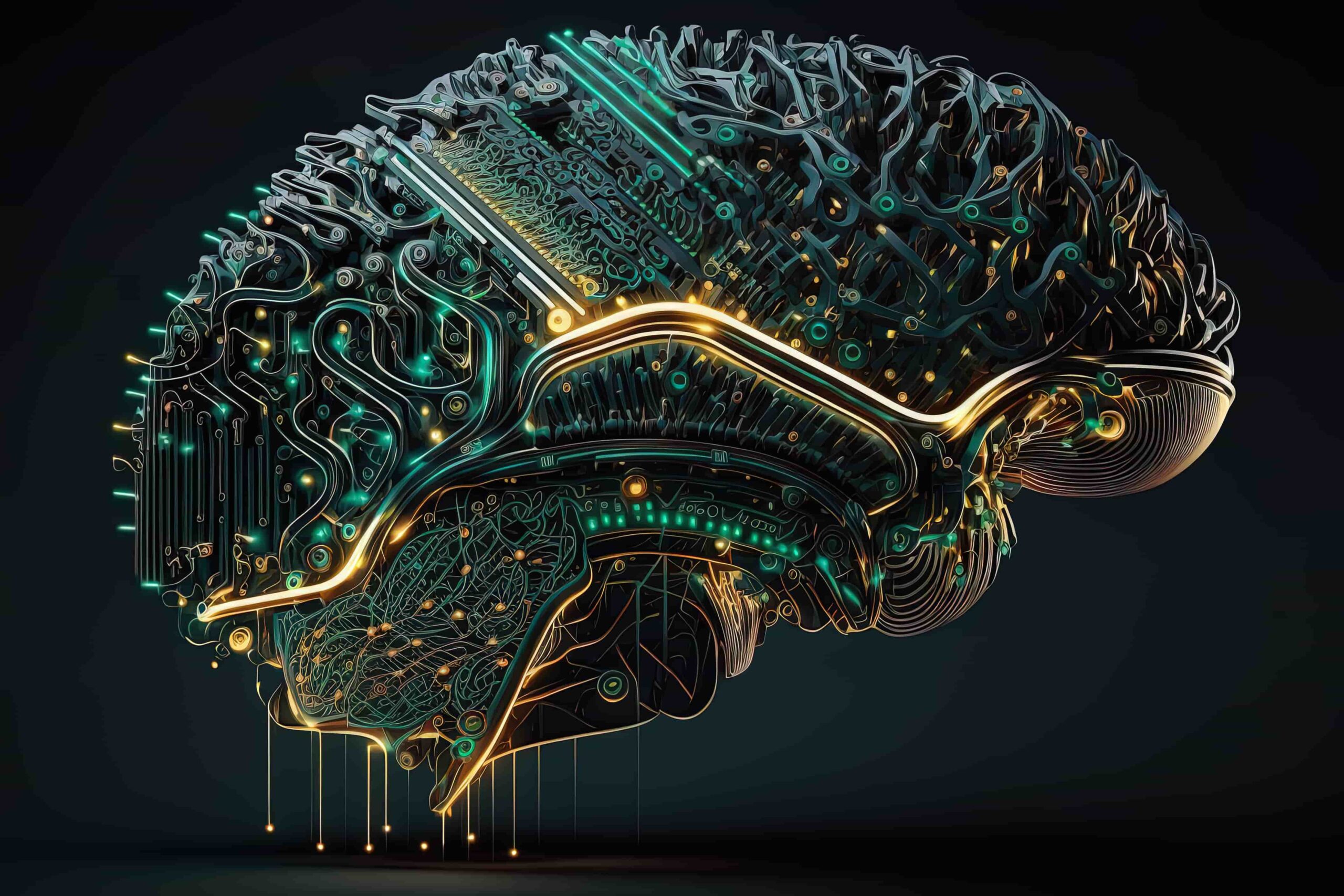According to Mordor Intelligence, the Artificial Intelligence Market will grow at 31.22% annually until at least 2028. It is mainly because cloud computing is popular among businesses of all sizes and cloud applications are deployed increasingly often. An IBM survey revealed that multicloud and hybrid computing models are most frequently used specifically to place workloads related to AI, machine learning (ML), business analytics and the Internet of Things (IoT).
- Merging AI and Cloud Computing
- The role of the cloud in AI training
- AI and Storing Data in the Cloud
Merging AI and Cloud Computing
Regarding Interaction of AI and cloud technologies, it is important to remember that clouds make it possible to install applications cost-effectively and to store and access ever-growing amounts of data almost instantly from anywhere in the world. All of the above allows to maximise the potential of AI applications as they are increasingly becoming part of corporate digital ecosystems. For example, they are used as business assistants, to recognise visual images and speech, analyse data in real time and prepare forecasts.
Application of AI in various fields helps businesses not only to gain an essential competitive advantage, but also to:
- become more flexible and scalable;
- make business processes more efficient;
- reduce errors;
- automate the majority of routine operations;
- make informed business decisions;
- improve the day-to-day customer experience.
It is certainly not the entire list of the options available. For example, application of AI in the fight against cybercrime in general and cyberthreats in the cloud is becoming a regular thing for big businesses. According to Acumen Research and Consulting, the global cybersecurity market will grow from $14.9 billion in 2021 to $133.8 billion in 2030! Some SaaS solutions can already detect and instantly respond to threats in the cloud.
Colobridge’s Expert:
“Whereas in the past most companies needed significant technical and human resources to implement AI solutions, nowadays this is as simple as possible. Our product called AI-Engine as a Service enables extracting valuable business information (in particular, predictive analytics) from unstructured data and building the most effective customer interaction. Moreover, it does not require major investments or an IT team – you get Cloud Machine Learning Platforms that are flexible, easy to deploy, maintain and scale. By combining AI, machine learning and data in the cloud, you can learn how to manage data to achieve much higher revenue levels for your business by reducing costs, increasing conversions, improving customer loyalty and increasing customer lifetime value.”
Innovations in AI and cloud computing make it possible to derive added value from the data a business collects and stores anyway. It may result in intelligent automation of processes in the cloud, even without human intervention. In this case, the cloud streamlines the performance of AI-based solutions, providing virtually unlimited opportunities for data processing and scaling computing power. Integrating cloud and AI solutions makes it possible to quickly manage and process large amounts of data, introduce innovations, and enhance performance through continuous self-learning and improvement of AI algorithms.
The cloud makes it possible to unlock the full potential of Artificial Intelligence.
The role of the cloud in AI training
One of the AI methodologies is machine learning, which makes it possible to find patterns in large datasets. In business, ML is used to solve a wide variety of problems:
- segmenting customers by preferences, behaviour or other characteristics;
- assessing risks and detecting fraud (e.g. during transactions);
- making predictions about the likelihood that certain events will occur, customers will act in some way, etc.;
- providing personalised recommendations based on historical data;
- recognising people through biometric data;
- running medical, vehicle and other types of diagnostics;
- automatically generating texts, images and videos.
The processes related to machine learning can be optimised through cloud computing. To introduce MO-based projects, it is not necessary to make major investments as the provider provides computing resources, including high-performance GPUs, on demand with flexible pricing. Moreover, public cloud will make it possible to experiment with ML not only with minimum investment, but also without advanced technical skills.
AI and Storing Data in the Cloud
Using AI always involves collecting, storing and processing big data sets, therefore the development and large-scale introduction of AI solutions increases the demand for cloud storage. At the same time, AI technologies directly impact the functionality of these storages. For example, now there are AI systems automating data management processes, minimising manual intervention and reducing the time when data becomes unavailable. Intelligent storage systems in the cloud use machine learning and artificial intelligence to optimise capacity and monitor and analyse storage health in real time.
Colobridge expert:
“For now, the demand for intellectual storage systems has not yet developed among Ukrainian companies, but it might happen over the next few years. This is not just another trendy thing, but a real tool with practical value. For example, Cloud services with built-in AI can track patterns and predict potential drive failures, or, in a more advanced version, initiate backup to the cloud to prevent data loss if an incident occurs. There is another possible use case: AI-based compression algorithms enable efficient data compression without losing its quality, thus reducing storage capacity requirements.“
Moreover, transferring data between AI and cloud storage takes less time.Learn more about the potential of using AI as a preconfigured cloud solution called AI-Engine as a Service from our experts.
